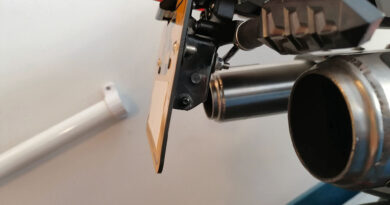Why Does My Car Sound Like a Motorcycle? Unraveling the Engine Symphony
Is your car’s engine suddenly producing a cacophony resembling a motorcycle’s roar? Many car owners have experienced this puzzling transformation in their vehicle’s auditory profile. In this comprehensive guide, we’ll delve deep into the reasons behind this phenomenon, explore the possible causes, and provide solutions to bring back the harmonious hum of your car’s engine.
Introduction
Like a loyal companion, your car often communicates with you through various signals, including the sounds it makes. A sudden transformation in your car’s audio profile, such as sounding like a motorcycle, can baffle you. Is it a harmless quirk or a sign of underlying trouble? Let’s explore this intriguing automotive soundscape.
Understanding the Motorcycle-Like Sound
Let’s establish a common understanding before we embark on our quest to decipher the motorcycle-like sound emanating from your car. Motorcycles possess a distinctive auditory signature, primarily attributed to their unique exhaust systems. This acoustic profile is characterized by a throaty, aggressive growl, quite different from the more subdued hum of a typical car engine.
So, when your car adopts this motorcycle-esque sound, it’s akin to a musical crossover between two different genres. Understanding this analogy helps us grasp the reasons behind this auditory transformation.
Common Causes of Motorcycle-Like Sounds
The motorcycle-like sound in your car can be attributed to a range of factors, some of which are outlined below:
1. Exhaust System Issues
**a. Exhaust Leaks and Holes: One of the primary culprits behind your car sounding like a motorcycle is an issue within the exhaust system. Exhaust leaks or holes in the system can disrupt the normal flow of exhaust gases, causing increased noise levels. This disruption in the exhaust path alters the sound, making it louder and more reminiscent of a motorcycle’s distinct growl.
b. Damaged Muffler: A damaged or deteriorating muffler can also contribute to the motorcycle-like sound. Mutes play a crucial role in reducing exhaust noise. When they fail or become damaged, the noise levels increase, giving rise to a more aggressive engine note.
2. Engine Anomalies
a. Misfires: Engine misfires can lead to irregular combustion within the cylinders. These misfires disrupt the engine’s normal rhythm and can create a rougher, louder sound similar to a motorcycle.
b. Low Engine Oil: Insufficient engine oil can lead to friction and increased engine noise. This low oil level may result in knocking noises, contributing to the motorcycle-like sound.
3. Aftermarket Modifications
a. Performance Exhaust Systems: Some car enthusiasts opt for aftermarket modifications to enhance their vehicle’s performance and sound. Installing a performance exhaust system or a high-flow muffler can amplify the exhaust note, resembling a motorcycle’s roar. These modifications are designed to create a more aggressive and distinctive sound.
4. Transmission Troubles
a. Transmission Issues: Problems with the transmission, such as worn gears or low transmission fluid, can lead to higher engine revs. This results in the engine producing a motorcycle-like sound, especially during acceleration. The transmission significantly influences the overall driving experience and can impact engine noise levels.
Now that we’ve explored the potential causes of your car’s motorcycle-like sound let’s move on to troubleshooting and finding solutions.
Troubleshooting: Step-by-Step Guide
Understanding the causes is only part of the journey. To restore your car’s engine to its harmonious hum, follow this step-by-step troubleshooting guide:
Step 1: Visual Inspection of the Exhaust System
- Check for visible signs of damage, holes, or rust in the exhaust system, including the muffler and pipes.
- Inspect the exhaust manifold for cracks or leaks.
Step 2: Listen Closely
- Pay attention to the specific circumstances when the motorcycle-like sound is most pronounced. Is it during acceleration, idle, or at all times?
- Determine if there are any accompanying symptoms, such as reduced performance, vibrations, or unusual engine behavior.
Step 3: Check for Exhaust Leaks
- With the engine running, carefully listen for hissing or popping sounds near the exhaust system.
- Use a flashlight to visually inspect the exhaust system for any escaping gases or smoke.
Step 4: Assess the Muffler
- Inspect the muffler for visible damage, rust, or loose components.
- Look for any holes or perforations in the muffler’s casing.
Step 5: Consult a Professional
- If you cannot identify the issue or if it’s related to engine or transmission problems, consult a qualified mechanic.
- Share your observations and any accompanying symptoms with the mechanic to aid in the diagnosis.
Remember that promptly addressing the issue can prevent further damage and ensure your car returns to its normal, quiet state.
FAQ Section
Q1: Why does my car sound like a chopper? A1: If your car sounds like a chopper, it likely means that the exhaust system has been modified to create a more aggressive and louder sound. Chopper motorcycles are known for their distinctive exhaust sound, achieved through modifications to the exhaust system.
Q2: Can I revert my car’s sound to its original state after aftermarket modifications? A2: You can restore your car’s sound to its original condition by replacing the modified exhaust system or muffler with the factory components. Consult a trusted mechanic for guidance on this process.
Q3: What are the legal implications of modifying my car’s exhaust system for a different sound? A3: The legality of exhaust modifications varies by location. Some regions have strict regulations governing vehicle noise levels and exhaust modifications. Check local laws and regulations before changing your car’s exhaust system to ensure compliance.
Q4: Is a motorcycle-like sound indicative of a severe problem with my car’s engine? A4: Not necessarily. While some causes of a motorcycle-like sound can be linked to engine issues, it’s essential to diagnose the problem to determine its severity. Consulting a mechanic will help identify any underlying severe issues.
Q5: Can engine misfires lead to long-term engine damage? A5: Yes, frequent engine misfires can result in long-term damage to the engine and its components. Misfires can lead to increased wear and reduced engine performance. It’s crucial to address misfire issues promptly.
Q6: What is the role of a muffler in the exhaust system? A6: The muffler in the exhaust system is designed to reduce exhaust noise. It contains baffles and chambers that dampen and muffle the engine’s sound, resulting in quieter operation.
Q7: Are there any advantages to aftermarket exhaust modifications beyond sound? A7: Some aftermarket exhaust modifications can enhance your car’s performance by improving exhaust flow. However, choosing changes that align with your performance goals and legal requirements is essential.
Q8: What can cause a motorcycle-like sound during acceleration? A8: A motorcycle-like sound during acceleration can be caused by various factors, including an aftermarket exhaust system, engine misfires, or transmission issues. A thorough inspection is needed to pinpoint the exact cause.
Q9: How can I check for exhaust leaks in my car? A9: To check for exhaust leaks, start your car and listen for hissing or popping sounds near the exhaust system. You can also visually inspect the exhaust components for escaping gases or smoke while the engine runs.
Q10: Can low engine oil levels lead to engine noise? A10: Yes, low engine oil levels can result in increased friction and engine noise. Insufficient lubrication can lead to knocking noises and potential engine damage. Maintaining the proper oil level is essential for engine health.
Conclusion
Your car’s transformation into a motorcycle-like symphony may initially perplex you, but understanding the potential causes and troubleshooting steps can help you restore its original sound. Whether it’s an issue with the exhaust system, engine anomalies, aftermarket modifications, or transmission troubles, timely diagnosis, and corrective actions will bring your car’s auditory profile back to harmony.
Don’t let the unexpected sound leave you in doubt; consult a qualified mechanic to address the issue and ensure your vehicle runs smoothly and quietly again. Your car’s engine deserves to be a symphony of reliability and performance, not an enigmatic ensemble of motorcycle-like notes.



